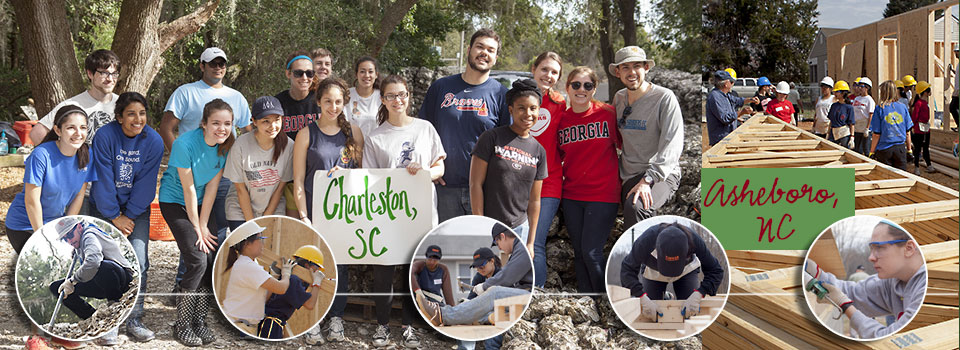Many University of Georgia students spend spring break tanning in warmer climates, snow skiing in cooler ones, or traveling to exciting locations across the globe. But each year, several hundred students travel for a different reason: to make an impact.
IMPACT Service Breaks engage UGA students in affordable, weeklong, substance-free, experiential service-learning projects. This spring, 364 students visited 20 cities where they performed a total of 14,560 hours-the equivalent of 660 full days-of service. The projects covered a wide range of topics, including urban environmental awareness, Native American cultural awareness and advocacy, children’s advocacy, and homelessness and poverty.
“An IMPACT trip gives a new perspective on life that a traditional spring break would not give,” said Sheela Sheth, a service trips site leader for the Asheboro, North Carolina, project. “[The trips] allow students to take a step away from normal life to understand social justice.”
In Asheboro, the trip focused on affordable housing. Students worked alongside a mother and her two young children to build a new home for their family.
“Not only were we hammering nails to boards, but we were able to put a face to the work we were doing,” Sheth said. “Knowing that one day that family would be living in the very place where we were putting up walls and a roof is such a fulfilling feeling.”
IMPACT Service Breaks, formerly Alternative Spring Break, began at UGA in 1994. More than 2,000 students have participated in the program since its inception. Due to increased popularity in recent years, trips have been added during the university’s winter break, as well.
“Our students seek out opportunities that are both fun and meaningful,” said Jen Rentschler, director of the Center for Leadership and Service. “The number of participants and hours contributed is impressive, but the impact on the lives of these families and communities is immeasurable.”
More than 20 years after the first “alternative” spring break service trip, more UGA students than ever are enhancing their education with service opportunities. What was once considered an alternative option is now the first choice for spring vacation for many students.
“Service-learning is an essential part of the undergraduate career,” Sheth said. “IMPACT has taught me to take a step back from my daily activities to give a bigger perspective on life and the importance of fighting for social justice in all communities.”
